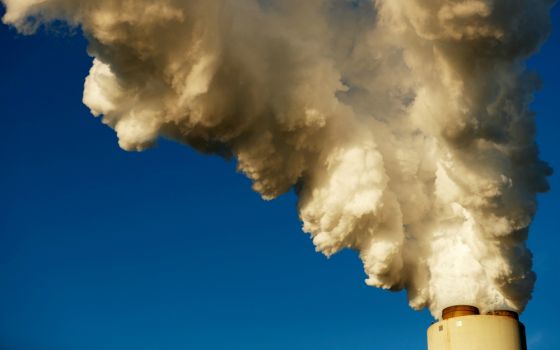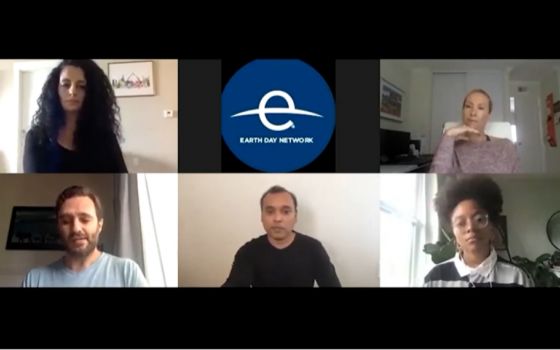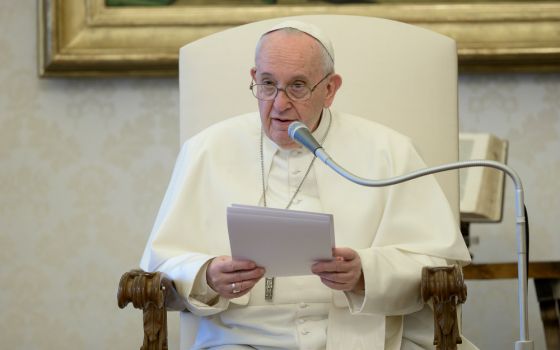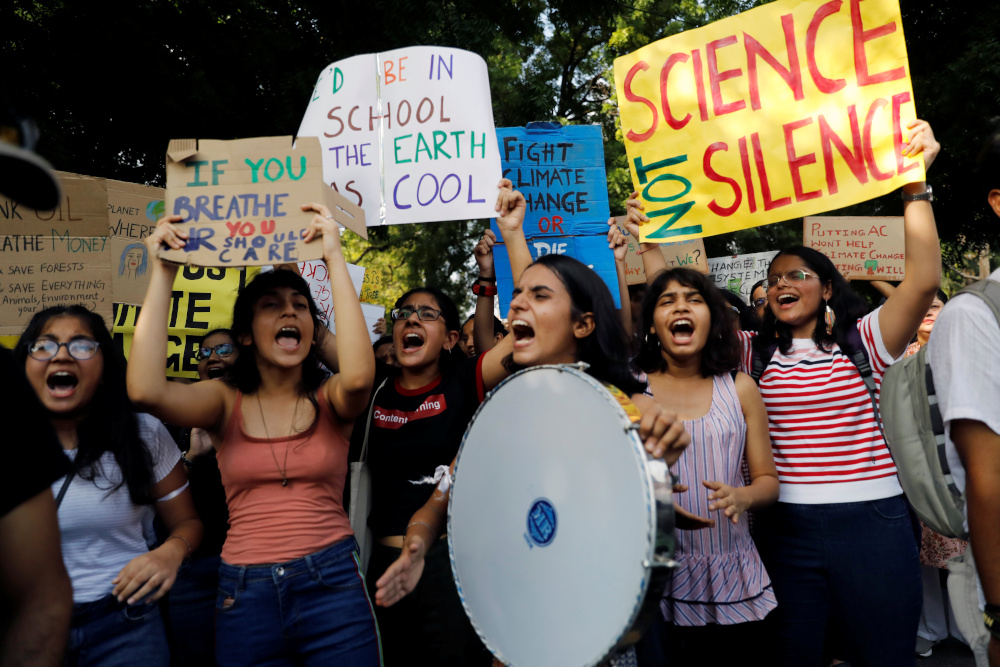
Students and activists hold placards with messages as they participate in a Global Climate Strike rally in New Delhi Sept. 20, 2019. (CNS/Reuters/Anushree Fadnavis)
COVID-19 has put the brakes on life as we know it. Travel and regular strolls (outside and in the supermarket) are the first to leave everyone's itineraries. Uncertainty and foregoing daily activities has caused a lot of sleepless nights as we helplessly and radically change our lifestyles to stop the pandemic.
That is not to say that quarantines have made our lives completely miserable. After all, adapting is common nature to humans. Generally speaking, families are having meals together again, those who can work from home are now a little more tech-savvy, and people are more in touch with a slower pace of life.
But would this be the same story for those less fortunate?

Dewy Sacayan (Photo/Colin McDiarmid)
Those from low socio-economic backgrounds and the elderly are hit twice as hard. After all, the pandemic is more than a public health issue – it's a social justice issue, too.
Quarantines are only bearable if one has a stable job that can be done from the comfort of home, if one has emergency savings for basic necessities, if one has a job they can continue or return to.
When community quarantine was imposed in the Philippines, hundreds of thousands of people living below the poverty line had no other choice but to fight for rationed food. Some risked being infected or arrested because staying at home would mean their family not eating for weeks. For those less fortunate, the question in their head is: "How will I exist?"
In many ways COVID-19 is just like another existential threat – climate change. Both global issues create unprecedented adverse impacts to public health and society. Both issues have the ability to crumple global economies. Neither issue discriminates in selecting victims. But its short and long-term impacts definitely discriminate based on social class. And most importantly, both issues are at the mercy of human intervention aimed at reducing the spread of infection and emissions.
To protect the vulnerable from COVID-19 and climate change, we have to change the way we work and live. Fortunately, putting others before ourselves is paramount in Catholic teaching.
In 2015, Pope Francis penned "Laudato Si', on Care for Our Common Home," which challenged every Christian to experience an ecological conversion. He challenged us to "hear the cries of the earth and the cries of the poor" — an intentional prioritization to ease the suffering of the most vulnerable in society.
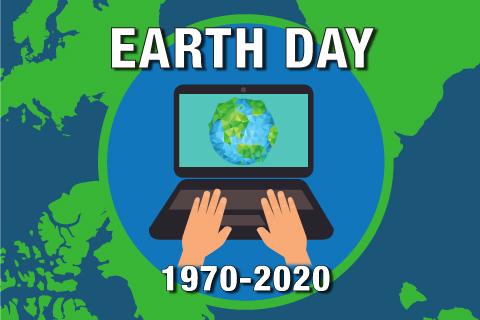
(Jesse Remedios/Toni-Ann Ortiz)
All of us are suffering but some are suffering more because they started with less to begin with. Most of us privileged enough to work from home must listen to the cries of the poor in the face of the virus and climate change. To secure an intergenerational solution to the two existential threats we currently face, Pope Francis' challenge rings true: "We require a new and universal solidarity.… All of us can cooperate as instruments of God for the care of creation, each according to his or her own culture, experience, involvements and talents."
Perhaps this quarantine is a restart to a changed lifestyle that turns its back on the "throwaway culture" that is built on reckless accumulation.
Perhaps this quarantine is the opportune renewal of a global 'new normal' in the way we treat our neighbours and our common home. After all, the science is clear: we have until 2030 to halve our emissions if we were to keep global warming well below 1.5 degrees.
So, what will your ecological conversion look like? What part of your "lockdown lifestyle" must remain post-lockdown in order to help us continue to reduce our emissions? Can you do with less flying? Would growing your own food be a suitable alternative? Could giving to charities targeted at sustaining the poor, children, and the elderly be part of your budget so that we can all recover from this unprecedented downturn together and with dignity?
With climate action as the central theme of Earth Day's 50th anniversary on April 22, let's all join digital campaigns on social media. If you are in the Philippines, let others into your bubble by posting a photo of your household's road to zero waste. In New Zealand, Zoom workshops and seminars on creating our "new normal" are plenty. Climate action groups such as Generation Zero are also posting submission guidelines on infrastructure projects that align with a low emissions future. Despite the community quarantine, let's not forget that everyday is Earth Day.
Turning a blind eye or drowning out the cries of the poor and our common home is not an option anymore. Just as the present crisis demands foresight and prompt action, climate change demands that we respond now to avert future catastrophe.
Pope Francis, scientists, doctors, essential workers, and our common home need all of us to be at the frontline.
[Dewy Sacayan, 26, is a litigation lawyer by day and a climate activist by night. She began her climate activism in her native Philippines, participated in the UN Framework Convention on Climate Change COP negotiations and works now to enforce environmental standards in Aotearoa (the Maori name for New Zealand, where she now lives).]
Advertisement





